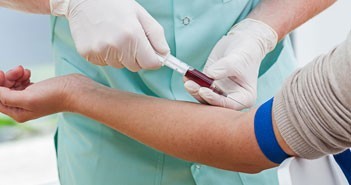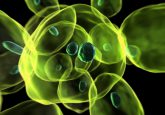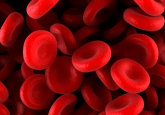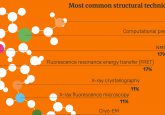Proteomics in the press: a round-up of the latest news

♦ In vivo real-time proteomics device may improve tumor removal surgery
New clinical market license agreement for a predictive diagnostic test for diabetic kidney disease in the USA
Georgi Makin (Future Science Group)
PromarkerD, a predictive diagnostic test for diabetic kidney disease, is soon to be available to over 30 million diabetes patients living in the USA as Proteomics International (Perth, Australia) grant PHDx (TX, USA) a license for the clinical market.
Proteomics International Managing Director, Richard Lipscombe, explained that PromarkerD was a key tool in the battle against the diabetes epidemic. “Regular testing and early diagnosis of diabetic kidney disease with PromarkerD can help millions of people avoid costly and invasive dialysis treatment or a kidney transplant,” he commented.
“We are very excited to launch this product nationally across the USA” Jim Canfield, President and CEO of PHDx remarked. “This revolutionary technology will complement PHDx’s existing portfolio to create the leading diabetes test offering in the country. It will save lives and improve the quality of life for diabetes sufferers, all while reducing the cost to the healthcare system.”
The license agreement will allow PHDx to develop and commercialize the PromarkerD mass spectrometry ‘Laboratory Developed Test’ in PHDx specialist certified laboratories. The Laboratory Developed Test permits fast adoption of a new test in advanced markets.
Lipscombe further explained that the breakthrough deal for PromarkerD in the USA is important in paving the way for further licensing contracts. “It is great to see PromarkerD launching in the world’s largest healthcare market as we further negotiations to commercialize the test in other countries including Mexico, Japan, Australia, China and Europe,” he concluded.
Source: www.medianet.com.au/releases/161908/
♦
In vivo real-time proteomics device may improve tumor removal surgery
Rhiannon Finnie (Future Science Group)
Researchers at the University of Lille (France) have developed a device that enables MS analysis of proteins, lipids and metabolites from the outermost few microns of skin or other tissues. The device, called the SpiderMass, may be used to enable surgeons to analysis for markers of cancer in a living patient’s tissue, during an operation.
Isabelle Fournier (University of Lille, France) and her team recently published the results from their device in Molecular & Cellular Proteomics. They report they hope the device will be an important step towards in vivo real-time proteomics and improve tumor removal surgery by analyzing for stray cancer cells at tumor margins for following primary tumor excision.
Previously, it has been a challenge to extract ions from living tissue without causing harm. Fournier and her team decided to produce a water-assisted laser desorption/ionization (WALDI) device to solve this problem.
The SpiderMass works by selectively exciting water molecules in the tissue with a pulsed laser. The ions are aspirated and transferred for analysis. Important to note, the device appears to cause no lasting tissue damage and volunteers reported only a slight tingling sensation.
Currently, the device is being used in a pilot trial comparing biopsies from pet dogs. However, if successful, Fournier hopes to release the device for use in human clinics soon to hopefully give patients better health outcomes.
Sources: Fatou B, Ziskind M, Saudemont P, Quanico J, Focsa C, Salzet M, Fournier I. Remote Atmospheric Pressure Infrared Matrix-Assisted Laser Desorption-Ionization Mass Spectrometry of Proteins. Mol Cell Proteomics. doi: 10.1074/mcp.TIR117.000582 (2018) (Epub ahead of print); www.eurekalert.org/pub_releases/2018-05/asfb-prp052318.php





